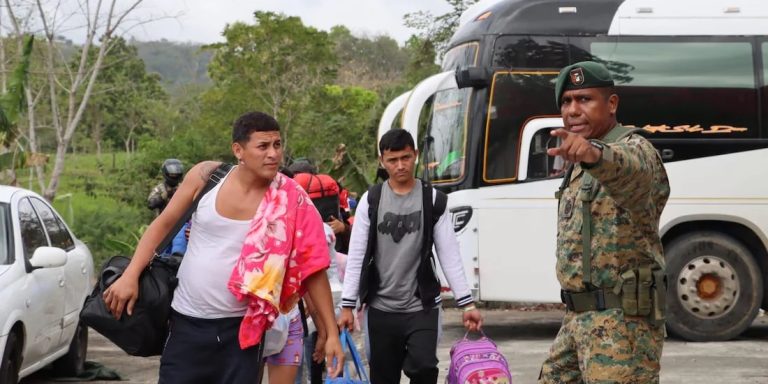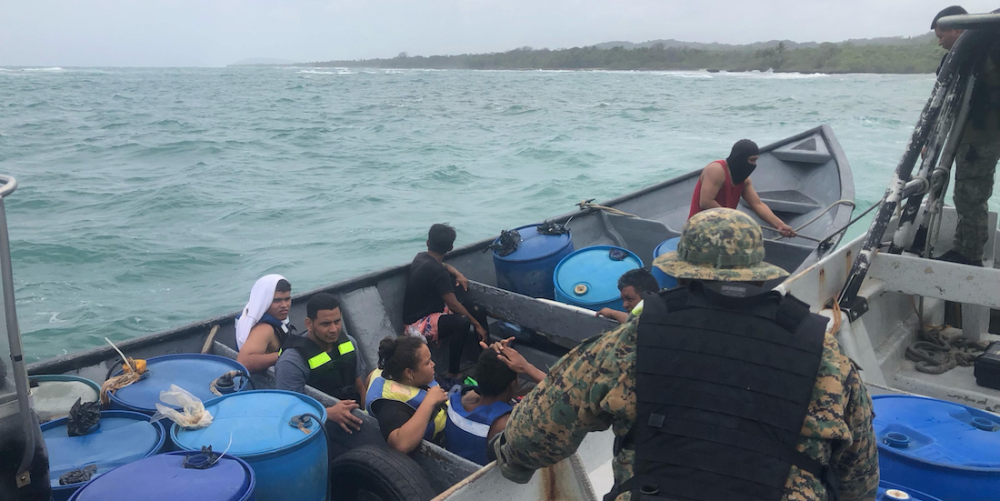
Migrants from Pakistan, Iran, and China have refused to return home, citing safety concerns, and have sought asylum in Panama
Panama City — Panama is currently grappling with a significant migration crisis as thousands of migrants, predominantly Venezuelans, find themselves stranded in the country after being expelled from the United States and other Central American nations.
This influx follows a series of agreements between Panama and the U.S. aimed at managing migration flows in the region.
On July 2024, Panama and the U.S. signed a memorandum of understanding (MoU) that included provisions for the repatriation of migrants and financial support from the U.S. for migration management operations.
However, recent political shifts in the U.S., particularly under stricter immigration policies, have led to increased deportations and the closure of pathways that many migrants had relied upon.
As a result, Panama has seen surge in number of migrants being sent back

Official sources from the Panamanian Ministry of Public Security estimate that over 400 migrants have returned from Mexico and Central America in recent weeks, with many more expected to follow.
These migrants are being housed in temporary shelters in the Darien province. Conditions in these facilities are reported to be dire, with overcrowding a persistent issue.
Migrants often sleep on makeshift beds and contend with unsanitary living conditions.
While basic necessities like food and medical care are provided, the overall environment remains challenging, with reports of waste attracting vultures and other hazards.
Among the migrants, Venezuelans face particular difficulties due to severed diplomatic relations between Panama and Venezuela.
This rift complicates repatriation efforts, leaving many in a state of limbo, unable to return home easily.
Migrants must often navigate complex legal and financial hurdles, exacerbating their frustration over the lack of clear information and assistance.
The Panamanian government has faced scrutiny for its handling of the situation.
Critics argue that Panama is shouldering a burden that is not its responsibility and that the government has not adequately planned for the influx.
Economists have cautioned that if the migrant population remains in Panama for an extended period, it could lead to social repercussions, including increased discrimination and xenophobia. They describe the current migration flow as disorganized, with potential to spark internal conflicts.
Adding to the complexity, some migrants from countries such as Pakistan, Iran, and China have refused to return home, citing safety concerns. These individuals have sought asylum in Panama, placing additional strain on the country’s resources and legal systems.
The Panamanian National Immigration Service is tasked with processing these cases, but a backlog and lack of clear regulations have led to delays and confusion.

In response to growing crisis, some migrants seek alternative routes out of Panama
Reports indicate that many are attempting to cross into Colombia via dangerous sea routes, often in overcrowded speedboats, risking their lives in the process. The situation has sparked debate within Panama about its role in regional migration management. Some view the country as a humanitarian bridge, while others see it as an unwilling participant in a broader geopolitical strategy.
The government’s decision to accept expelled migrants has been linked to pressure from the United States, particularly amid historical tensions over the Panama Canal.
As crisis unfolds, Panamanian government faces mounting pressure to find solutions
Negotiations with Colombia are underway to facilitate the transit of migrants to the Venezuelan border, but progress has been slow. In the meantime, the migrants remain in limbo, their futures uncertain.
The coming weeks will be critical in determining whether Panama can effectively navigate this complex situation, balancing its international obligations with the humanitarian needs of the migrants and the concerns of its citizens.
Many Migrants Stranded in Panama as Repatriation Efforts Stall (March 26, 2025)